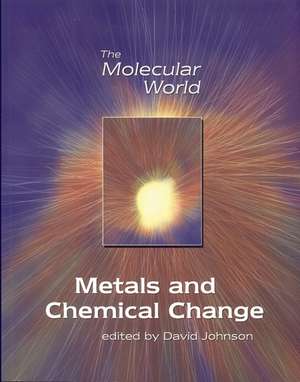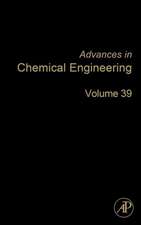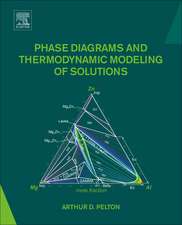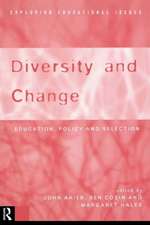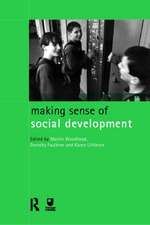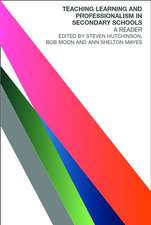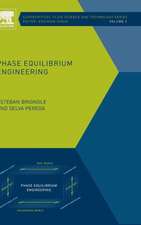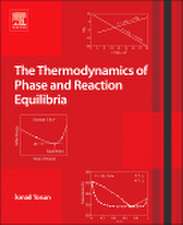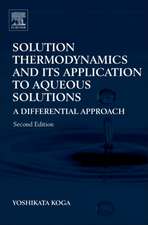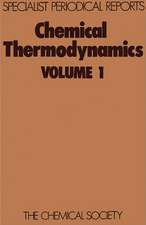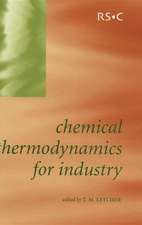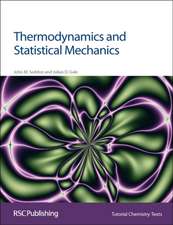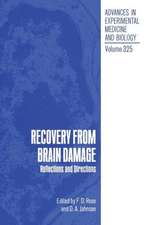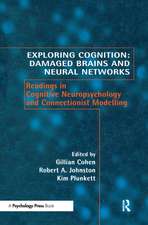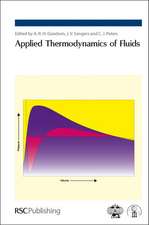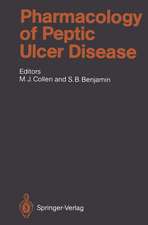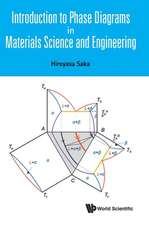Metals and Chemical Change: Rsc: Molecular World
Autor Open University Editat de D. A. Johnson, Lesley E. Smarten Limba Engleză Paperback – 30 iun 1999
This book looks at how molecules react, and how the feasibility and outcome of chemical reactions can be predicted. Beginning with an introduction to the concept of an activity series of metals, Metals and Chemical Change then introduces chemical thermodynamics (enthalpy, entropy and free energy) and applies the concept to both inorganic and organic elements. A Case Study on batteries and fuel cells is also included. The accompanying CD-ROM includes video sequences of the reactions of metals with water, acid and aqueous ions, and gives the reader an opportunity to make experimental observations and predictions about chemical behaviour. A comprehensive Data Book of chemical and physical constants is included, along with a set of interactive self-assessment questions. The Molecular World series provides an integrated introduction to all branches of chemistry for both students wishing to specialise and those wishing to gain a broad understanding of chemistry and its relevance to the everyday world and to other areas of science. The books, with their Case Studies and accompanying multi-media interactive CD-ROMs, will also provide valuable resource material for teachers and lecturers. (The CD-ROMs are designed for use on a PC running Windows 95, 98, ME or 2000.)
Din seria Molecular World
-
 Preț: 331.35 lei
Preț: 331.35 lei -
 Preț: 192.27 lei
Preț: 192.27 lei -
 Preț: 260.63 lei
Preț: 260.63 lei -
 Preț: 188.22 lei
Preț: 188.22 lei -
 Preț: 313.39 lei
Preț: 313.39 lei -
 Preț: 195.30 lei
Preț: 195.30 lei -
 Preț: 256.48 lei
Preț: 256.48 lei - 14%
 Preț: 1658.41 lei
Preț: 1658.41 lei
Preț: 282.91 lei
Nou
Puncte Express: 424
Preț estimativ în valută:
54.13€ • 56.67$ • 44.79£
54.13€ • 56.67$ • 44.79£
Carte disponibilă
Livrare economică 17-31 martie
Preluare comenzi: 021 569.72.76
Specificații
ISBN-13: 9780854046652
ISBN-10: 0854046658
Pagini: 272
Dimensiuni: 210 x 262 x 15 mm
Greutate: 0.9 kg
Editura: Royal Society Of Chemistry
Seria Molecular World
Locul publicării:United Kingdom
ISBN-10: 0854046658
Pagini: 272
Dimensiuni: 210 x 262 x 15 mm
Greutate: 0.9 kg
Editura: Royal Society Of Chemistry
Seria Molecular World
Locul publicării:United Kingdom
Cuprins
Introduction; Reactions of Metals; Metals and their Ores; Metals and their Ease of Oxidation: A Hypothesis; Equilibrium: A Restatement of the Problem; Thomsen's Hypothesis: Towards a Solution?; The Second Law of Thermodynamics: The Solution; The First Law of Thermodynamics; Enthalpies of Reaction: A Database; Entropy Changes; The Gibbs Function; Metals and their Ease of Oxidation; Thermodynamic and Kinetic Stability; Reactivity; Thermodynamics and the Oxidation of Metals; Enthalpy and Entropy Terms; Metals and their Ores; The Born-Haber Cycle; Introduction to the Remaining Sections; The Lattice Energy; Electrochemical Cells and Redox Potentials; Ionization Energies of Atoms; The Chemistry of Group I: The Alkali Elements; Alkali Metal Compounds in Industry; Binary Alkali Metal Compounds with Non-metals; Metal Ions, Ligands and Complexes; Alkali Metal Complexes; The Group II or Alkaline Earth Elements; Case Study: Batteries and Fuel Cells.
Notă biografică
Eleanor Crabb is a Lecturer in Materials Chemistry at The Open University. She studied chemistry at the University of Reading where she continued to undertake a PhD in heterogeneous catalysis. She spent another 9 months at Reading as a postdoctoral research fellow before moving to the Ecole Normale Superieure de Chimie de Montpellier as a postdoctoral research fellow. In 1993, she joined The Open University and has worked on a number of science courses, producing both text based and multimedia materials. She has produced sequences introducing students to 3D molecular representations of molecules and proteins for a wide range of courses at different levels, and has produced a number of animated multimedia sequences on receptor binding. Her research interests remain in the field of heterogeneous catalysis and she is the author (or co-author) of around 20 papers in this area. She is currently seconded part-time to one of the Centres for Excellence in Teaching and Learning (CETL) awarded to The Open University. Rob Janes is a Staff Tutor at The Open University in Wales. He studied chemistry at the University of Leicester, where he remained to undertake PhD research in solid state chemistry of the silver halides. He spent one year as a visiting scientist at Eastman-Kodak, Rochester, New York, before moving to the University of Cambridge as a Post-Doctoral Research Associate, working on high-Tc superconductivity. He taught at the Manchester Metropolitan University, developing courses in inorganic chemistry, materials chemistry and imaging science. His publications record consists of around 50 papers in the field of solid-state/materials chemistry. His research interests centre on the synthetic routes to ceramics - more specifically nanosize ceramic oxides and composite oxides, inorganic pigments and phosphors and studies of the electronic and magnetic properties of solids. Elaine Moore is a Reader in Chemistry at The Open University. She studied chemistry at Oxford University, stayed on to complete a DPhil in theoretical chemistry and after a two year post-doctoral position at Southampton, she joined The Open University in 1975. She has produced OU teaching texts in chemistry and astronomy and her research interests are in theoretical chemistry applied to solid state systems and to NMR spectroscopy. She is author or co-author on over 40 papers in scientific journals. Lesley Smart is a Senior Lecturer in chemistry at The Open University. She studied chemistry at the University of Southampton where she stayed on to complete a PhD on Raman spectroscopy. She has written on many science courses and chaired the production of the second level chemistry course. Her research interests are in the areas of solid state chemistry and catalysis, and in particular, preparing and characterizing new materials and catalysts. Dr Rob Davies (Consultant Author) is Senior Lecturer at Imperial College, London. He graduated from the University of Bristol before going to St John's College Cambridge to study for his PhD. He was appointed to a three year Research Fellowship at St Catharines College Cambridge and then moved to Imperial College where he was awarded a Governors' lectureship. His research interests lie in synthetic organometallic and coordination chemistry, especially of the main group metals. Dr David Johnson (Consultant Author) is a Visiting Reader in Chemistry at The Open University. A fellow of Trinity Hall, Cambridge, he was a founding member of the Department and worked on many of the chemistry courses prior to his retirement.
Textul de pe ultima copertă
Metals play a vital role in the metabolism of plants and animals and, increasingly, in medicine. The Open University has developed an undergraduate course - Metals and Life, with two books, Metals and Life and Concepts in Transition Metal Chemistry used as the main teaching material. The books and the course cover how organisms acquire metals, their transport and storage, illustrated by such diverse examples as iron in the human body, and structures such as shells and teeth. This book provides an introduction to the metals essential to life and ligands of biological importance. It considers the uptake of metals, their transport and ultimately their storage, illustrated in particular with the story of iron in the body. It also considers Na, K and Ca ion channels and biomineralisation and covers the key roles that metals and their complexes play in living systems, for example in respiration and photosynthesis. The last section (delivered online) considers metal toxicity and deficiency and the role that metals play in medicine, looking at both diagnostics and therapy and the forefront of inorganic research.
